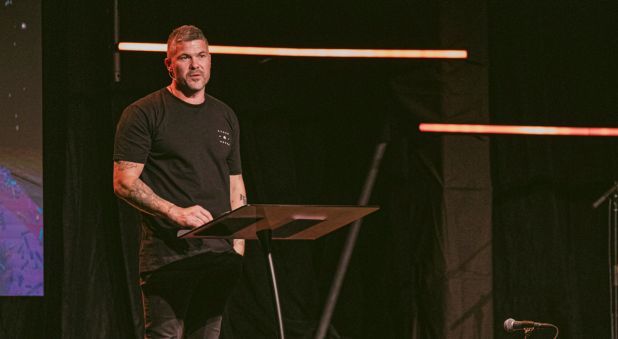When McCrindle Research conducted a nationwide survey in 2017 to gauge Australia’s attitudes towards Christianity, it discovered:
- Only 7 to 8 per cent of people regularly attend a Bible-believing church;
- 8 per cent of Australians don’t even know a Christian;
- 38 per cent of people are either hostile to the faith or entirely apathetic.
There’s no doubt that the spiritual state of our country is dark. We live in a society that has rejected Jesus Christ for generations. This big picture is often reflected in much smaller snapshots in our own lives – our attempts at evangelism are so often rejected, we can feel as though there’s very little point in continuing our efforts. It’s common for us to feel discouraged, dejected and dismayed.
In the face of such darkness and discouragement, what can we do?
The good news is that we’re not the first people who’ve had such experiences. Jesus, the greatest evangelist who ever lived, faced a culture that, while very different to ours, was also very similar in its widespread rejection of him. So, what can we learn from his response?
The end of Matthew 9 gives us clarity. In verse 36 we’re told that Jesus had “compassion” on the crowds of people he engaged with. That should come as no surprise; he was living in a time of great political and social upheaval, not to mention a lack of medical care for common people.
What may be surprising is that none of these things are what brought about his empathy. Instead, it was because “they were harassed and helpless, like sheep without a shepherd”. This is not a description of the physical condition of the crowds, but their spiritual condition. Jesus is compassionate because the people are distant from God; as a result, they are facing his judgement.
In the face of this, verse 35 tells us that Jesus spends his time speaking and acting in such a way that people might see he is the Messiah, come to earth to gather God’s people into his kingdom. Why would he do that? Because he views the world with eternity in mind. He sees the reality of heaven and hell, of life and death. He also knows that there is no one outside of the saving power of the gospel.
The diagnosis is spiritual darkness. The cure is the gospel, which brings spiritual light.
Opportunity and expectancy
But there’s one other thing I want to show you. After proclaiming the gospel from a heart of compassion, Jesus turns to his disciples and says these famous, yet surprising words:
“The harvest is plentiful but the workers are few” (v37).
This verse is an explosive truth!
We might be tempted to think the biggest barrier to evangelism in our society is a hostile world. Opposition. Persecution. Disinterest. Yet Jesus is saying that despite what may appear dark, there are many people ready to believe in him. Jesus surveys the world around him – hostile and disinterested – not with exasperation, but with expectancy for what God’s gospel can do. So, he gathers the disciples and urges them to pray for more workers (v38), then sends them out to proclaim the gospel (10:1-7). They become the very workers they had been told to pray for!
What does this mean for us, you might ask? How does this help us see Australia won for Christ?
I think that before we do anything, we need to see. We need to shape our lives around the reality of life that Jesus offers. We then need to remind each other that the biggest problem facing unbelievers is that they are spiritually lost. This means that no matter how they may present themselves to us, we must treat them with the greatest compassion possible: by telling them the gospel.
We need to view the harvest field in front of us in the same way as Jesus – not with exasperation, but with expectation.
While many of the statistics about Christianity in Australia are alarming, the survey mentioned above also presented an alternative picture. Yes, millions of people don’t know a single Christian – but 79 per cent of Aussies know at least two people who say they’re Christian. The group surveyed was also asked what words described the Christians they knew. The top three answers were caring, loving and kind. The media might dislike us... but our mates? They like us!
But here’s what I really want you to notice: in answer to the question, “How open would you be to changing your current religious view?”, 26 per cent of unbelievers were “extremely” or “slightly” open to change. That’s 6.8 million people. One out of four Aussies!
Of course, the issue is that we don’t know who these people are. Three out of four people are not interested in change. But one in four are! The question is, will you go through the three to find the one?
There’s no shortage of rejection awaiting us, but also no shortage of opportunity. Let us partner together in praying that the Lord of the harvest would raise up more workers to toil in the harvest field; and, in so doing, remember our own part to play in harvest work where we live.
Dave Jensen is the assistant director of Evangelism & New Churches and co-host of the Fire Up! podcast























